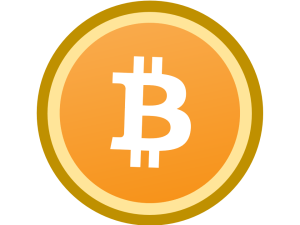A virtual currency like Bitcoin could open up an array of new markets, while speeding the worldwide exchange of goods.
Rimas Kapeskas | UPS

Our world is getting smaller, flatter and more connected every day.
The rise of e-commerce has empowered consumers and changed the landscape for buying and selling goods, while transforming the worldwide economy.
This omnipresent demand for goods, regardless of the market, will soon get even more intense.
However, the current payment, clearing and settlement systems are major bottlenecks to the flow of global trade. They are inefficient, have long settlement times and high-cost fees and exchange rates.
Today’s technologies have enhanced the global exchange of information about goods and bolstered transportation networks moving items across borders. People around the globe have access to virtual marketplaces that feel borderless.
But consumers are still stuck in the credit card age of payments for those transactions. Sure, credit cards have been around for 65-plus years. But they are ripe for a technological leap.
Breaking down barriers
If you’ve ever traveled abroad, you know that converting cash or using your credit card is often a hassle.Calculating fair exchange rates and the fees involved is like trying to solve a math problem without knowing the variables.
In the world of global e-commerce, it’s the same problem.
Rules and regulations, as well as currency, vary by country. Unfortunately, not all merchants are capable of managing that level of complexity online.
If someone living outside the United States doesn’t have an American bank account and credit card, it’s nearly impossible to complete an online purchase from a U.S. retailer.
Put simply, a number of barriers can get in the way of buying what you want once you cross borders, even online.
A unified, global currency is the ideal solution, as it would simplify cross-border transactions.
But as recent events have proven, even regional currencies like the Euro struggle to keep national economies in order and are far from perfect in handling the complexities of a global economy.
A virtual hope
Technologies are advancing, even if governments struggle to keep pace. These platforms are fostering a globally accepted exchange mechanism, which would not require a unified monetary system.
This is where virtual currency could come into play. Digital money can be sent across borders without going through multiple intermediaries and currency swaps.
If recognized, its value is the same regardless of where you do business, eliminating friction points and facilitating the faster flow of goods.
In 2008, Satoshi Nakamoto published a paper, Bitcoin: A Peer-to-Peer Electronic Cash System, outlining the details of a payment system that would allow individuals to send and receive payments without intermediary financial institutions. This was the birth of Bitcoin.It was not the first virtual currency but the first application of a new block-chain encryption technology.
While Bitcoin has suffered from a fair share of controversy and volatility in its nascent stages, the block-chain technology has created numerous possibilities for improving money transfers and simplifying payment processes – and revolutionizing many other industries.
More than 100,000 businesses already accept Bitcoin, including large companies like Microsoft, Home Depot, Dell, CVS, Expedia and Amazon.
Startup companies are tapping into hundreds of millions of dollars in venture capital investments.
Leading financial institutions and technology leaders like Barclays, Citigroup, the New York Stock Exchange and IBM are also making investments in the technology.
Many of your transactions today are already virtual and happening online.
It is no surprise, then, that currency will become easier, cheaper and more secure. Our whole concept of money and how it gets exchanged is going to change as we become increasingly digitized.
How we handle, store and exchange currency will continue to evolve – it’s just a matter of at what speed and where we will see it next.
Opening up trade
For global e-commerce to thrive, the movement of goods, funds and information must be both secure and seamless. Digital currency would allow consumers and businesses of all sizes and in all places to participate.
“ Virtual currency seems like a logical next step that could bring markets closer together and facilitate faster trade.”
The fastest growth globally will likely be in the emerging markets of Africa, the Middle East and other areas of the world that have been traditionally less developed.Vast populations in these communities are getting better access to technology and to capital, allowing them to easily exchange money, goods and services.
Mobile payment companies like M-Pesa are giving millions of people access to the formal financial system, stimulating business and reducing crime in otherwise largely cash-based societies.
From our vantage point, the driving force globally is that all companies and consumers can easily do business with one another.
In other words, it doesn’t matter where those goods are coming from – UPS can provide the transportation solutions to ensure speedy delivery.
We just need the technical and regulatory advances that will allow global financial transactions to happen.
Virtual currency seems like a logical next step, one that could bring markets closer together and facilitate faster trade.
Usually, the advances that stand the test of time are the ones that most effectively eliminate barriers and make commerce easier – perhaps that’s why global trade is so ready for a global exchange system that enables seamless transactions.
Click on the bitcoin logo below to buy, use or accept bitcoin. Unocoin is India’s most popular bitcoin wallet.
To read the bitcoin white paper, visit: https://bitcoin.org/bitcoin.pdf








